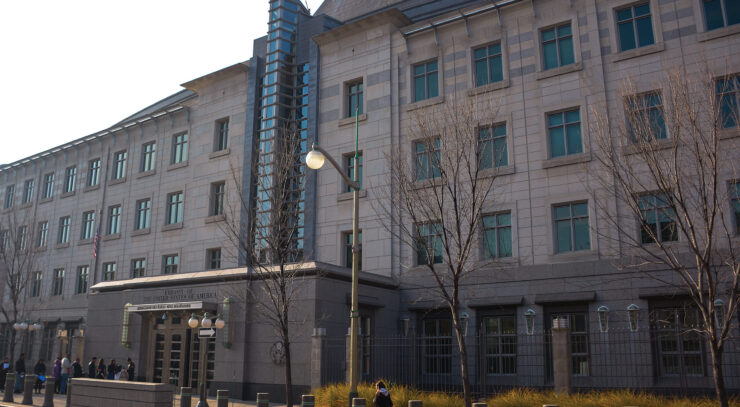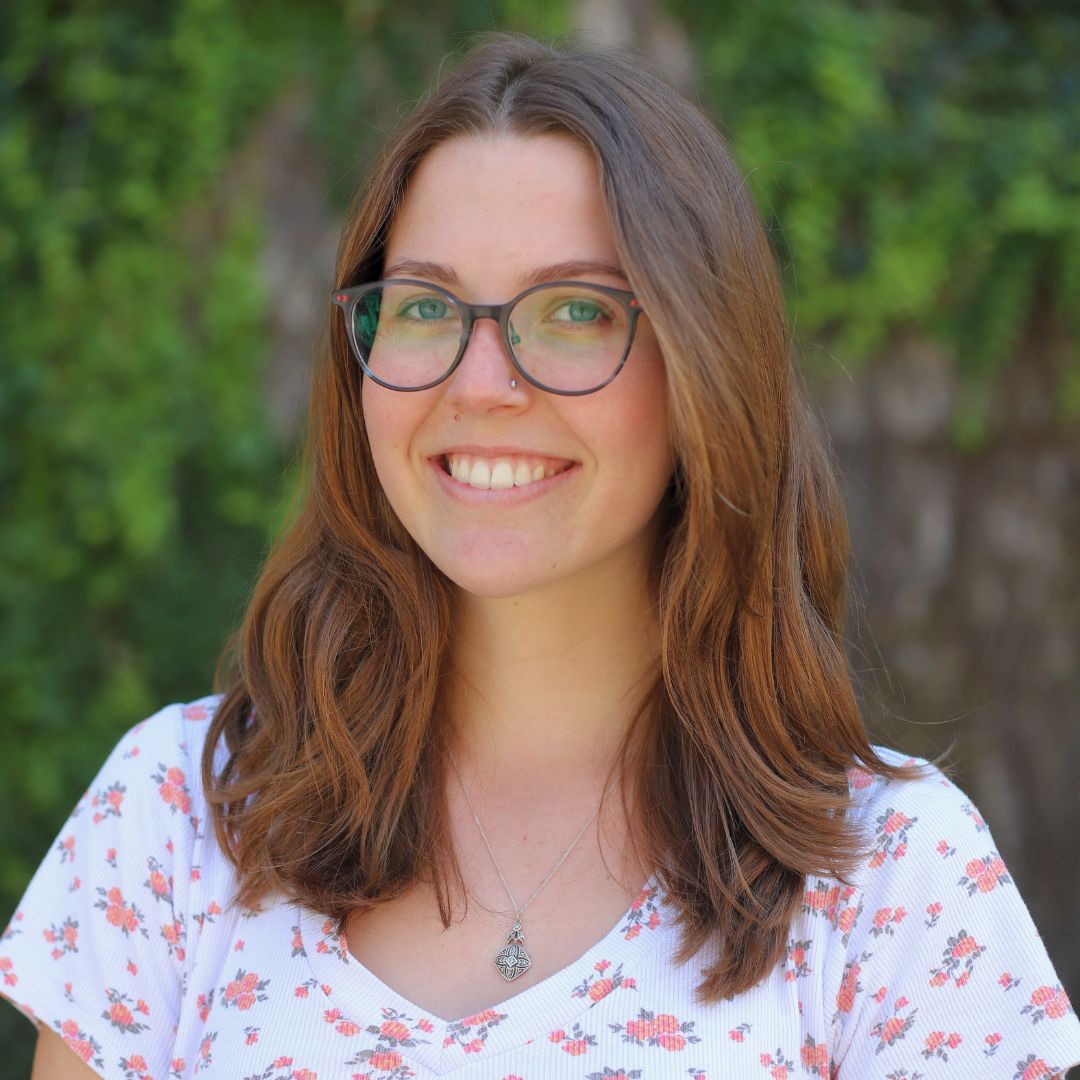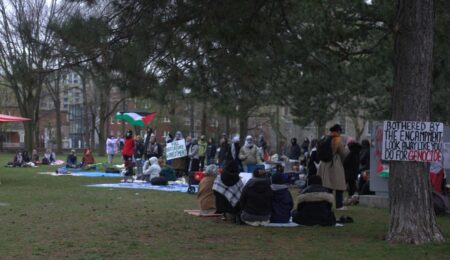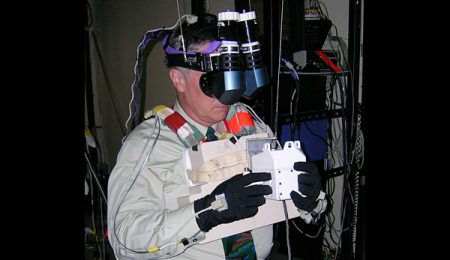Panelists from the department of Political Studies discuss their initial reactions to Trump’s reelection, campaign promises, and potential implications for Canadians
The morning of Nov. 6 — following the results of the 2024 United States presidential election — political experts at the University of Ottawa composed a panel to comment on their first analysis and thoughts of the results, accompanied by a discussion period with those in attendance.
The meeting was organized in anticipation of the results on the night of Nov. 5. The following morning, the Associated Press reported that the leader of the Republican Party, Donald Trump, had surpassed the required 270 electoral votes – making him the 47th president-elect.
Professor of political studies, and host of the event, Jean-Pierre Couture, introduced the bilingual panel in French, also noting that the department of political studies has previously organized panels “[closely following] bad or traumatic news.”
Panelist members included Ph.D. candidate Devon Cantwell-Chavez, Ph.D. student Gavin Furrey, U of O professors Jacqueline Best, André LeCours, Daniel Stockemer, and Kevin McMillan. Both Cantwell-Chavez and Furrey referenced their first-hand experiences of living under the 2016 Trump administration.
For Furrey, the 2024 election had a “personal angle” recalling that during Trump’s first presidency “where I once saw natured, loving relatives, I started to see Trump supporters.” Furrey elaborated that “there’s more distance, less questioning, less curiosity” between him and previously close family members.
Cantwell-Chavez, a former resident of Jacksonville, Mississippi highlighted that “while racial segregation policies have been formally repealed, there’s a lot of inequity [still present]”, citing the legacy of Jim Crow laws, and misunderstandings due to a lack of communication with “black rural communities.”
Presentations continued with Best’s projections for the American economy based on Trump’s planned policies of major tax reductions, larger tariffs, and the financial deregulation of bitcoin. As per Best’s analysis, these policies will cause short-term market boosts, but will overall negatively impact the economy long-term described by Best as an economic “bump [up], slump [down], and then darkness.”
Best forecasted that these changes will cause economic instability for Canada as “over 70 per cent of our exports go to the United States [and if] we impose retaliatory tariffs, as we’ll likely do, we will also end up with inflation … less [economic] growth … [and] likely move into an era of global trade war.”
Lecours continued the panel’s analysis of the influence of populist politicians “undermining political influences, condemn[ing] political elites, and identifying internal enemies as scapegoats.”
Lecour’s immediate predictions for Canadian impacts are: pressure to increase defence contribution, an influx of migration due to the “mass deportation” planned by Trump, and for votes during the next Canadian federal election to be influenced by which candidate is best suited to work internationally with Trump.
Presentations were wrapped up with Macmillan’s analysis of “the unpredictability” of Trump’s campaign promises. An estimated cost for deportation is “$11,000 per person … totalling around $300-400 billion [in total]” to accomplish the promise, leaving doubt for the probability of its success.
Stockemer noted that the discrepancies between pre-election polls and the official results can be linked to desirability bias, the social expectation on behalf of visible identities of voters — explaining why the large Latino voting population for Trump, who had previously made derogatory remarks about this community, occurred.
Following Trump’s victory, the U of O has also arranged contacts for academic community leaders to provide more information per request on the Latino and Hispanic impacts, immigration and possible expulsion, and the overall global impact of the election.
The crowd of around 60 gathered on campus in the Faculty of Social Sciences building was largely composed of University of Ottawa students in their undergraduate or graduate programs.
A student from the crowd told the Fulcrum: “I think everyone is traumatized right now, and it’s good to have authority figures from campus to hear from.”






